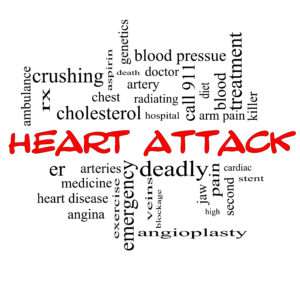MedlinePlus states that Cholesterol1 is a fat (also called a lipid) that your body needs to work properly. Too much bad cholesterol can increase your chance of getting heart disease, stroke, and other problems. The medical term for high blood cholesterol is lipid disorder, hyperlipidemia, or hypercholesterolemia.
Heart Disease2 was the leading cause of death of Black Americans in 2010 according to the Centers for Disease Control (CDC). Jay Harold discussed Heart Disease in more detail in a post, “Heart Disease and African Americans: Just the Facts.
Is Cholesterol Essential for Human Health? (Yes)
Cholesterol is a waxy, fat-like substance that your liver makes. It is also found in some foods that come from animals.
Cholesterol is found in all parts of your body. It plays a vital role in your body. It makes hormones, helps you digest food, and supports the workings of all the cells in your body. But your liver makes all the cholesterol that your body needs to do this.
Lipoproteins and Cholesterol
Cholesterol circulates in your blood stream. But it’s fatty while your blood is watery. Just like oil and water, the two do not mix. As a result, Cholesterol travels through your bloodstream in small packages called lipoproteins. The packages are made of fat (lipids) on the inside and proteins on the outside.
Two kinds of lipoproteins carry cholesterol through your bloodstream. It’s important to have healthy levels of both:
- low-density lipoproteins (LDL)
- high-density lipoproteins (HDL).
What Does LDL Cholesterol Do?
Low-density lipoproteins (LDL) carry cholesterol to all the cells in your body, including the arteries that supply blood to your heart. LDL cholesterol is sometimes called bad cholesterol because it can build up in the walls of your arteries.
The higher the level of LDL cholesterol in your blood, the greater your chances of getting heart disease.
What Does HDL Cholesterol Do?
High-density lipoproteins (HDL) carry cholesterol away from the cells in your body. HDL cholesterol is sometimes called good cholesterol because it helps remove cholesterol from your artery walls. The liver then removes the cholesterol from your body.
The higher your HDL cholesterol level, the lower your chances of getting heart disease.
If Your Blood Cholesterol Is Too High
Too much cholesterol in your blood is called high blood cholesterol. It can be severe. It increases your chances of having a heart attack or getting heart disease.
When the cholesterol level in your blood is too high, it can build up in the walls of your arteries. This buildup of cholesterol is called plaque.
Plaque Buildup Can Lead to…
- Atherosclerosis. Over time, the plaque can build up so much that it narrows your arteries. This is called atherosclerosis, or hardening of the arteries. It can slow down or block the flow of blood to your heart.
- Coronary Heart Disease (CHD). Atherosclerosis can occur in blood vessels anywhere in your body, including the ones that bring blood to your heart, called the coronary arteries. If plaque builds up in these arteries, the blood may not be able to deliver enough oxygen to the heart muscle. This is called coronary heart disease (CHD).
- Angina. The buildup of plaque can lead to chest pain called angina. Angina is a common symptom of CHD. It happens when the heart does not receive enough oxygen-rich blood from the lungs.

- Heart Attack. Some plaques have a thin covering, so they may rupture or break open. A blood clot can then form over the plaque. A clot can block the flow of blood through the artery. This blockage can cause a heart attack.
Lowering Cholesterol Can Affect Plaque
Lowering your cholesterol level reduces your chances of plaque rupturing and causing a heart attack. It may also slow down, reduce, or even stop plaque from building up. And it reduces your chances of dying from heart disease.
High blood cholesterol itself does not cause symptoms, so many people don’t know that they have it. It is important to find out what your cholesterol numbers are because if you have high blood cholesterol, lowering it reduces your chances of getting heart disease or having a heart attack.
The National Institutes of Health (NIH) has provided valuable information about the often misunderstood medical condition of high blood cholesterol3 .
Here’s a Chart on Cholesterol From the Food and Drug Administration (FDA)4
Click on this link to see this excellent infographic
Drug Medication Management of Cholesterol5
The main goal of cholesterol treatment is to lower LDL to levels that will not lead to or worsen heart disease. When a patient without heart disease is first diagnosed with elevated blood cholesterol, the National Cholesterol Education Program guidelines advise a six-month program of reduced dietary saturated fat and cholesterol, together with physical activity and weight control, as the primary treatment to bring levels down.
When diet and exercise alone are not enough to reduce cholesterol to goal levels, doctors often prescribe medication—the most prominent being the statins. By interfering with the production of cholesterol, statin medications can slow the formation of plaques in the arteries.
Statins are relatively safe for most people, but some can respond differently to the drugs. Certain people may have fewer side effects with one statin drug than another. Some statins, in particular, Lovastatin and Simvastatin, also are known to interact adversely with other drugs. This information, coupled with the degree of cholesterol-lowering desired, will help guide the decision about which statin to use, or whether another type of drug should be used.
Statin medications (HMG-CoA reductase inhibitors)
- work in the liver to prevent the formation of cholesterol
- are effective in lowering bad cholesterol levels and raising good cholesterol
- are not recommended for pregnant patients or those with active or chronic liver disease
- can cause serious muscle problems
Currently available statins
- Lovastatin (Mevacor, Altoprev)
- Pravastatin (Pravachol)
- Simvastatin (Zocor)
- Fluvastatin (Lescol)
- Atorvastatin (Lipitor)
- Rosuvastatin (Crestor)
Side Effects of Statins6
Jay Harold wants you to be aware of possible adverse drug reactions to statin medications. Please review the side effect data the FDA has provided about the statins.
- Routine monitoring of liver enzymes in the blood, once considered the standard procedure for statin users, is no longer needed. Such monitoring has not been found to be effective in predicting or preventing the rare occurrences of serious liver injury associated with statin use.
- Cognitive (brain-related) impairment, such as memory loss, forgetfulness, and confusion, has been reported by some statin users.
- People being treated with statins may have an increased risk of raised blood sugar levels and the development of Type 2 diabetes.
- Some medications interact with lovastatin (brand names include Mevacor) and can increase the risk of muscle damage.
Enjoyed this post? Share it and read more here. Questions? “Ask the Pharmacist a Question!” Jay Harold is always looking out for your health and wealth.
Please take this advice of Muhammad Ali and give back to others. “Service to others is the rent you pay for your room here on earth.” ~ Muhammad Ali
Bibliography
- https://medlineplus.gov/ency/article/000403.htm
- https://www.cdc.gov/men/lcod/2010/lcodrace_ethnicitymen2010.pdf
- https://nihseniorhealth.gov/highbloodcholesterol/whatishighbloodcholesterol/01.html
- http://www.fda.gov/downloads/drugs/drugsafety/ucm293474.pdf
- http://www.fda.gov/ForConsumers/ConsumerUpdates/ucm048496.htm
- http://www.fda.gov/ForConsumers/ConsumerUpdates/ucm293330.htm






